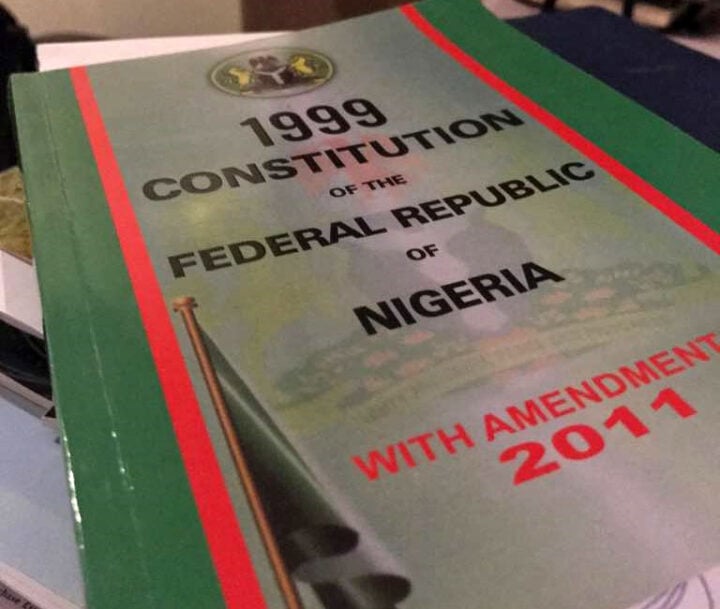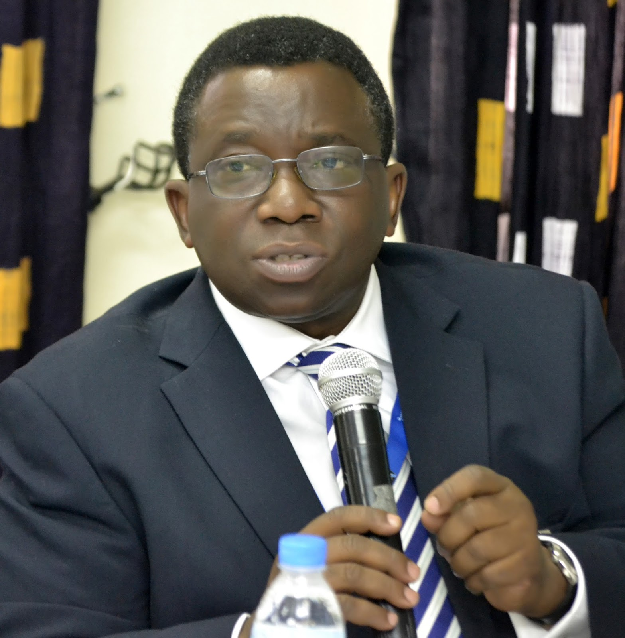The national assembly has just made some amendments to the 1999 constitution.The senate passed resolutions on Wednesday, while the house of representatives deliberated on the amendments on Thursday.
The national assembly kicked off the amendment process in 2016. In line with TheCable’s policy to deliver knowledge-driven journalism, we have collated some of the key questions that would help you gain more insight into the issue of constitution amendment and how it affects you.
FIRST, WHAT IS CONSTITUTION AMENDMENT?
This simply refers to the modification in the form of improvement, correction or revision to the original content of the constitution of a nation or state to suit their interest.
Advertisement
DOES THE CONSTITUTION PROVIDE THAT IT BE AMENDED OR IS THIS A GOVERNMENT INITIATIVE?
Yes, the 1999 constitution actually has provision for amendment when the need arises. Section 9 of the constitution states thus: “(1) The National Assembly may, subject to the provision of this section, alter any of the provisions of this constitution.
“(2) An Act of the National Assembly for the alteration of this Constitution, not being an Act to which section 8 of this Constitution applies, shall not be passed in either House of the National Assembly unless the proposal is supported by the votes of not less than two-thirds majority of all the members of that House and approved by resolution of the Houses of Assembly of not less than two-thirds of all the States.
Advertisement
“(3) An Act of the National Assembly for the purpose of altering the provisions of this section, section 8 or Chapter IV of this Constitution shall not be passed by either House of the National Assembly unless the proposal is approved by the votes of not less than four-fifths majority of all the members of each House, and also approved by resolution of the House of Assembly of not less than two-third of all States.”
SO WHAT DOES THE PROCESS OF CONSTITUTION AMENDMENT INVOLVE?
Proposals for amendment of the constitution usually come in the way of bills – which can originate either from the executive or from a lawmaker. After the usual introduction of the bill and the necessary voting is done and an amendment is carried out in both chambers, a conference committee will be set up to harmonise the differences.
If both chambers are not able to harmonise positions, the bill will be returned to the respective chambers for fresh voting. Two-thirds of the numerical strength of each chamber will be required to pass it at this stage.
Advertisement
Once passed, it is transmitted to all the state house of assemblies for concurrence. When two-thirds of the states approve each clause by simple majority, the returns are then made to the national assembly and should mean that the amendments come into effect.
There is, however, the debate whether at this stage, the returned bill from the states automatically comes into effect or if it should be sent to the president for his assent. If the process is defeated at any stage, it will end any further step and will have to start afresh.
Meanwhile, the president cannot veto (refuse to sign the bill into law) an amendment that has been validly passed by the national assembly and having the approval of two-thirds majority of the state houses of assembly.
The current amendment is seeking to reduce the president’s ability to withhold assent for a bill passed by parliament, and removing law-making powers from the executive.
Advertisement
WHY IS THE 1999 CONSTITUTION BEING AMENDED IN THE FIRST PLACE?
This constitution has been faulted at various times as a document created to serve the interest of the military government and not for the interest of Nigerians.
Advertisement
Emeka Anyaoku, former Commonwealth secretary-general, described the 1999 constitution as an attempt by the military “to transit us as quickly as possible into a civilian routine” and as such, does not reflect equity or representation of the various parts of the country.
Bisi Akande, interim national chairman of the All Progressives Congress (APC), had also described the constitution as Nigeria’s greatest misadventure.
Advertisement
BUT THE 1999 CONSTITUTION HAS LED US FOR 17 YEARS AND THE HEAVENS DIDN’T FALL? HOW COME WE ARE TALKING ABOUT AMENDING IT NOW?
The 1999 constitution was amended in 2011 when former President Goodluck Jonathan was in power.
Advertisement
Also, the seventh national assembly, still under Jonathan, began a constitutional review process but it didn’t see the light of the day. The former president was accused of “bungling the exercise and rubbishing efforts made lawmakers”.
The lawmakers had to start afresh, hopefully, the process of addressing the loopholes in the constitution would scale through this time around.
WHAT ARE THE AMENDED AREAS THAT AIM TO ADDRESS THESE LOOPHOLES?
One of the key areas is independent candidature, which means an individual qualified to vie for an elective position can contest the position without being a member of a political party.
Another significant area is that the amended constitution aims to provide special accounts for the 774 local government areas in the country. That way, state governments will no longer exact power over what goes to which council in their states.
Kindly check the full details of the amendment here and here.
SO WHY WERE THESE ISSUES NOT ADDRESSED WHEN THE CONSTITUTION WAS FIRST AMENDED?
The needs of a society evolve over time and as a result of this, things are constantly improved upon to suit their interest. Change, they say, is the only constant thing.
The provisions of the constitution actually allow the document to be amended over time to suit the needs of Nigerians.
IS THE AMENDMENT IN LINE WITH RECENT CALLS FOR RESTRUCTURING OR A TOTALLY SEPARATE AGENDA?
No, the constitution review process is an agenda on its own. As earlier pointed out, it started before the agitation for restructuring resonated in the polity. But it can also address some of the issues advocates of a restructured Nigeria want to be addressed.
For instance, one of the key areas restructuring hopes to get addressed is that of granting complete autonomy to the local governments. To some extent, the amended constitution would solve that with the financial autonomy being granted to states.
WITH ALL THE TALKS ABOUT THE AMENDMENT, IT LOOKS LIKE AN ENTIRELY NEW NIGERIA IS BEING CREATED. WHAT WOULD BE THE BENEFITS OF THE AMENDED CONSTITUTION?
Some of the ways the amended constitution would affect you as an individual are:
– If you had an interest to run for the governorship position in your state, for instance, but won’t be 40 years old before 2019, the next election year, the constitution provides you can now run for the position if you are going to be 30 by then.
– You can also be able to vie for a seat either at the state or national level without having to go through a political party, provided you meet the criteria for vying for an elective position.
– Nigerians won’t have to wait all year long before a newly-elected president appoints members of his cabinet as the amended constitution aims to mandate the president to appoint his ministers within 20 days from the day he was sworn in. Same applies to state governors.
You will understand some other implications when you go through the amended areas.
HAVE MORE QUESTIONS? KINDLY USE THE COMMENTS SECTION.
1 comments








GOOD ARTICLE